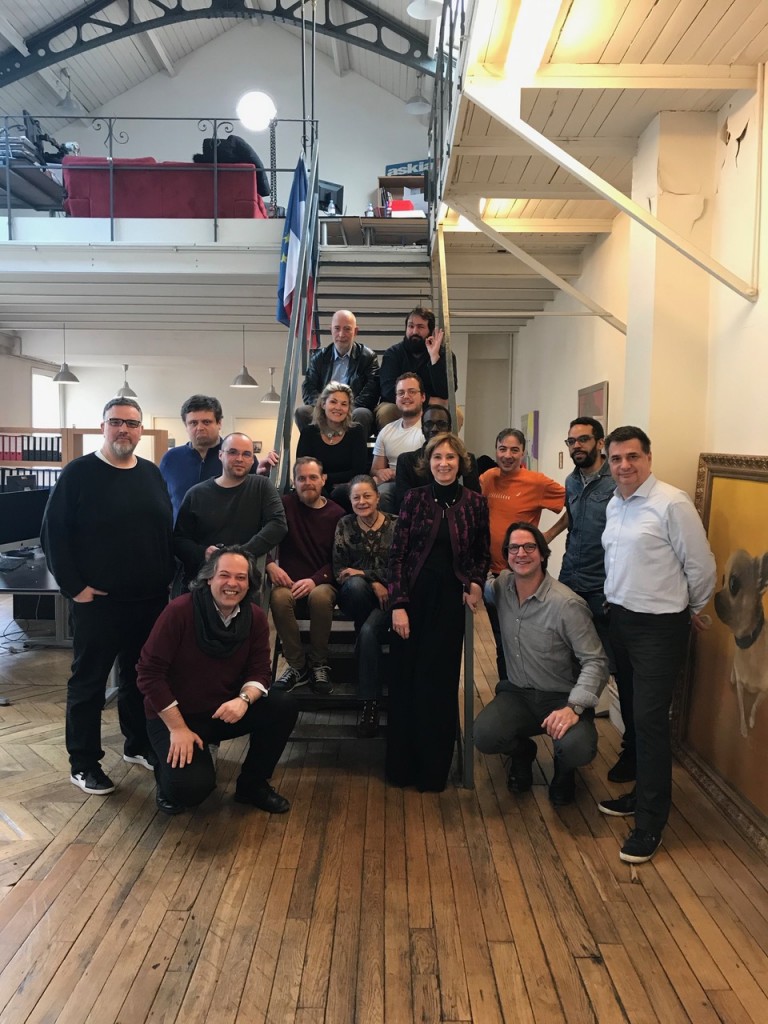
This blog article is an interview with Jérôme Sopoçko and Patrick George Lassale, co-founders of Askia. Originally published online on 23rd March 2020 in the Market Research News France website – original article in French.
The announcement was made a few days ago: Ipsos is taking a majority stake in Askia, a specialist in software solutions for Market Research. Yet another acquisition one might say, as these are happening quite commonly these days in our industry. However, the news came as a surprise to at least some market players, due to an image of independence strongly associated with Askia.
So why has this happened? What are the key reasons? What changes does this mean for Askia’s customers? These are the questions answered by Jérôme Sopoçko and Patrick George Lassale, its two co-founders.
MRNewsFR: A few weeks ago it was announced that Ipsos had acquired a majority stake in Askia. The acquisition trend has been well established in the industry for several years now. However, this news came as a little surprising to many…
Jérôme Sopoçko: This is a decision that has to be put into perspective with our history, and which was taken with certain contextual elements in mind. Since its inception, Askia has never been attracted by the sirens of “Enterprise Feedback Management” (EFM) or “Voice Of the Customer” (VOC), but has always had the ambition to focus on research agencies. This has resulted in objectives that we have done our utmost to achieve by relying exclusively on organic growth. But we have become aware of the limits of this approach. This became obvious when we saw other competitors growing strongly, built on technologies that we have no inferiority complex about. I am thinking of Confirmit for example, or Decipher from FocusVision. Qualtrics, by the scale of its acquisition, is a rather special case. We have also seen Google launch its Google Forms on the market, and even a company such as “Survey Monkey” has reached very high valuation levels. In this context, we realized the needed support from financial partners to continue to play a role and to be able to grow it. We had basically two main options. The first was to make a deal with Venture Capitalists. It was completely unthinkable for us; this type of player would have demanded that we renounce our values in order to submit to a soulless market law. The second was to get closer to a company with an entrepreneurial rather than a financial vision. This seemed the best one to us, without a doubt.

MRNewsFR: Setting aside the option of the Venture Capitalists, why Ipsos rather than another company? Why did Ipsos make the move for Askia?
JS: It was done gradually. First of all, in 2017, Ipsos launched a call for tenders to replace a tool that was important to it, Dimensions, a product that had been largely abandoned, following various disposals (SPSS-IBM-UNICOM). As a result, we were put out to tender with around fifteen providers. Askia was short-listed, but in the end Ipsos did not complete the process. In early 2019, Ipsos Digital nevertheless asked us to work on the “Fast Facts” project, which is their DIY solution, and to provide them with the backbone they needed. This partnership went well and Ipsos offered to take a majority stake in our capital. They were ready to invest, not for purely financial reasons, but because they had a team, its skills and a tool – Askia. They wanted to build a platform that would be a benchmark for the market, not to take it over.
Patrick George Lassale: It is often forgotten that Ipsos is one of the largest market research companies in the world. 2 billion in turnover, with around 18,000 employees worldwide. But I think we should also stress the human component and the key role played by Andrei Postoaca, CEO of Ipsos Digital, in this transaction. He was the one who suggested that we collaborate on “Fast Facts”. He then launched and led the due diligence process for the acquisition of the stake. It was an opportunity for intense and exciting technical exchanges with Ipsos experts. But it was also an enriching human experience, first with Andrei and his team, then with Didier Truchot and Laurence Stoclet.
MRNewsFR: Ipsos is a group whose entrepreneurial spirit is unanimously recognised. But independence is strongly associated with Askia’s image. Was this decision so easy to make?
PGL: The first question Didier Truchot asked us was precisely on this point: if we integrate your capital, how are you going to maintain your relationship with your clients? The fact that this issue – and therefore that of our independence – was raised from the outset was decisive for us. We want to work on a product that is good for the industry. The teams are perfectly in tune with this vision. They have welcomed the consequences with enthusiasm. It is no longer a question of them being employees of a company of 50 people, but of becoming evangelists for a solution that must be a reference on a global scale.
MRNewsFR: What are the consequences for the Askia brand, for the way you operate, and for your customers?
JS: The Askia brand remains, of course. We are part of an executive committee and will therefore participate fully in the decisions, as co-managers. The company is expected to double or triple in size in the coming years. Our software is going to evolve significantly to become even more professional, scalable and easy to use than it is today. The big change is that we will have the means that is consistent with our ambitions for the performance of our solutions.
PGL: Relying on Ipsos’ investments will enable us to quickly improve the delivery times of our new versions and offer a better quality of service, which is of course essential for our clients. Jérôme mentioned this, but I’d like to stress this point, because I think it’s really essential: the solution we’re going to work on will not be exclusive to Ipsos at all, but on the contrary, the solution will be used by all our clients.
JS: We really want to build a benchmark for the industry. This is going to lead us to create an Advisory Board in the near future, so that our clients can share their vision and advice with us. Of course, all of this must not be empty promises, and we must prove ourselves. Askia’s alliance with Ipsos guarantees our clients the long-term viability of our structure. They can now rely on a solution that will continue to grow, protected from the vagaries of venture capitalism, and at price levels that will remain consistent. I have no doubt that they are winners in history. For our part, we and our teams are as motivated as ever to work in this direction!

